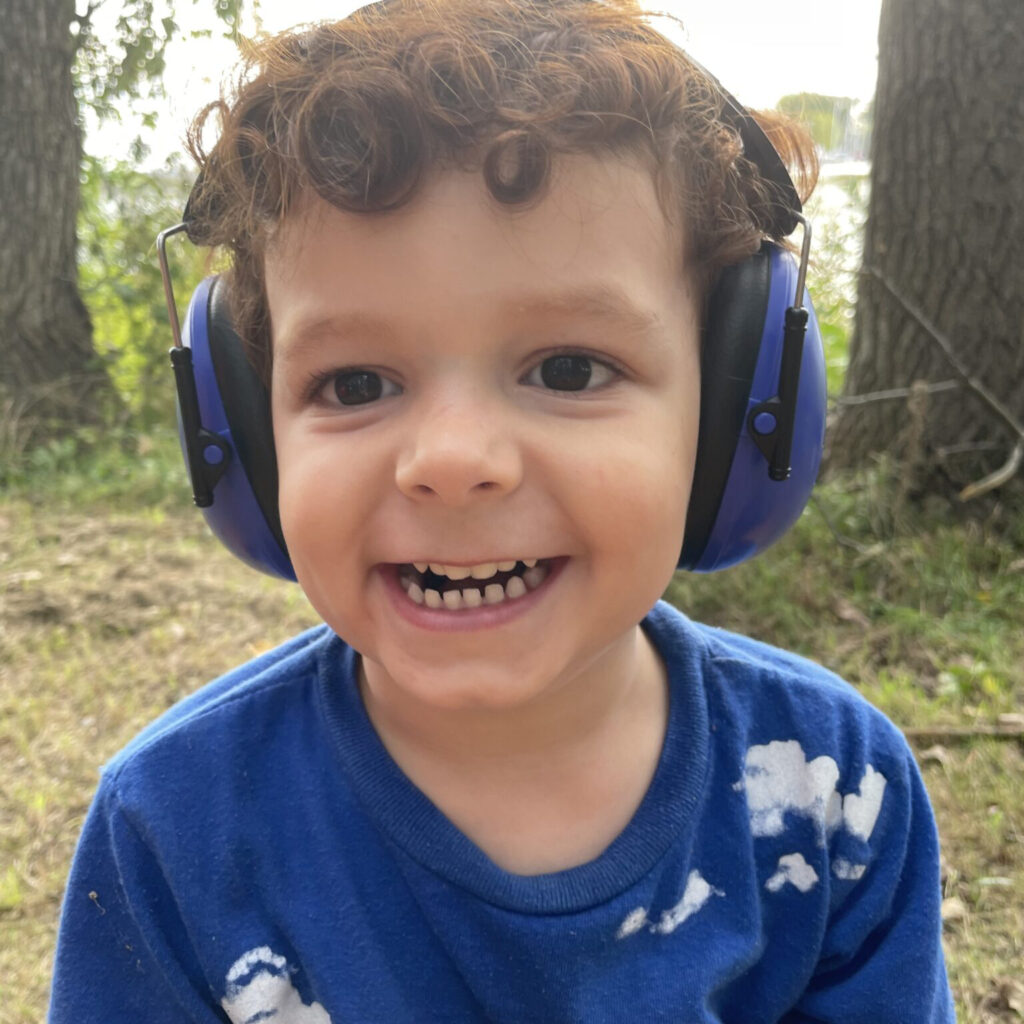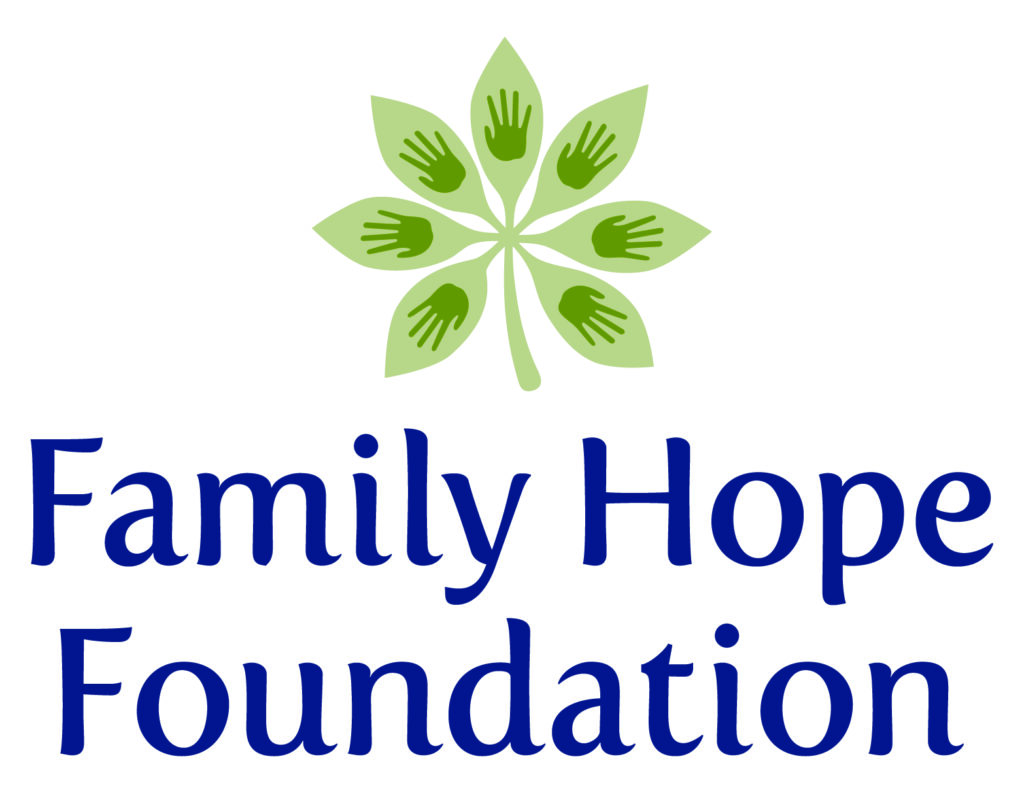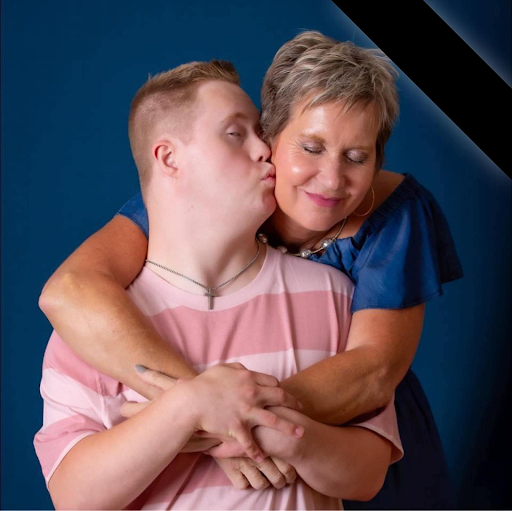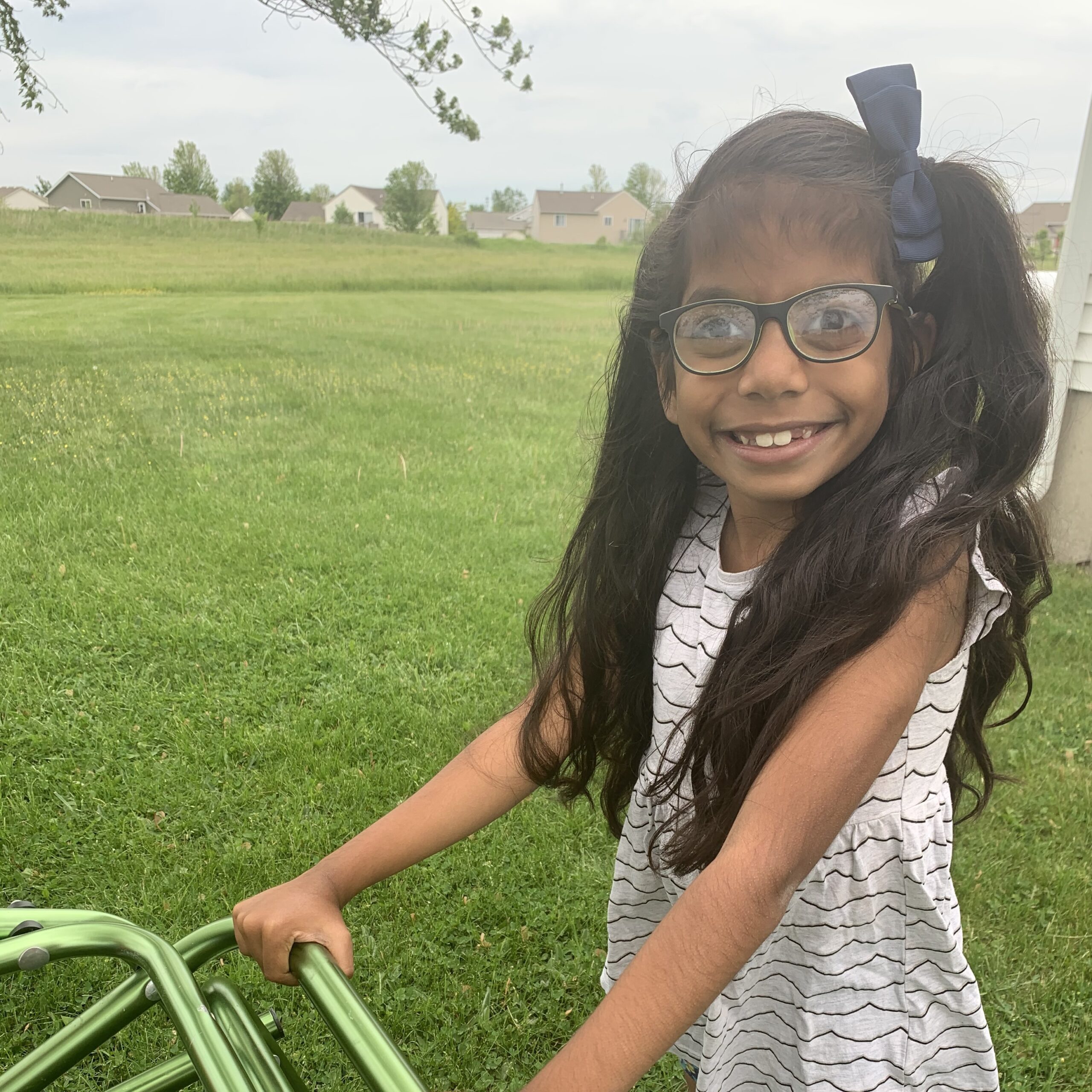When Forrest was about six months old, we noticed he was overly responsive to loud noises. He would become inconsolable at things like dogs barking or kids laughing. He struggled to be around other children due to their loud, unpredictable noises. Being around adults was also challenging. Forrest couldn’t handle every day sounds like sneezing or laughing.
Over time, we chalked it up to “being a toddler” and the lack of social interactions he had growing up during a pandemic. However, just before Forrest turned two years old, his baby sister was born, and the dynamics at home changed significantly. Babies aren’t quiet, and our home life became chaotic as we juggled a newborn and a toddler who struggled to tolerate her sounds.
Everyday activities were challenging for our family. I tried to take Forrest to a toddler story time, and we both left crying. Seeing our son so dysregulated over things entirely outside his control was painful. We started to avoid “normal” things to keep him comfortable and less stressed. It was hard to see Forrest struggling. We knew his heightened sensitivity to sound would stand in the way of his ability to thrive and build meaningful relationships with his sister and other children.
We started with his pediatrician, where Forrest was diagnosed with sensory over-responsivity disorder. We were referred to Occupational Therapy and began sessions with Sensational Steps Therapy, where they started working on regulating his sensory needs. We incorporated some basic sensory elements into the home. We gave Forrest a climbing tower for Christmas, turned an old mattress into a “crash pad,” and pulled some logs into the yard to act as balance beams.
We started to see growth in Forrest in areas that had previously been very challenging for him. We could slowly begin to attend events where there were other children, and Forrest was able to stay without becoming too overwhelmed. We were able to start doing things Forrest enjoys, such as visiting the fire station, going to the library, and going to playgrounds. We also started building in the use of headphones in his daily life. Forrest can have ownership over when he wears them. Since they offer him some relief from the harshness of loud sounds, they allow him to expand his experiences.
We have seen him begin to grow in his relationship with his sister. Previously, he wouldn’t want to be in the same room as her due to his negative association with her loud noises. We could not take both of them in the car together and often had to keep them in separate rooms at home. Today, Forrest will bring her toys, give her goodnight kisses, and help feed her at mealtime. Before, a five-minute drive to the store with both kids was nearly impossible. Now we are regularly able to ride around as a family and have even had a successful three-hour trip together to visit grandparents.
While we have made tremendous strides through therapy, Forrest still has daily challenges and struggles with his sensory regulation. We know we have a long road ahead. Because of this, we have made it a habit to celebrate the “small wins” – the things that could easily be taken for granted but that we have had to build up to over time. We love seeing Forrest get excited over a toy truck that makes a honking noise or a tow truck in the street that beeps as it backs up. We are starting to feel more like a family as we grow in our experiences together.
Receiving the scholarship from Family Hope Foundation was crucial to our ability to provide regular Occupational Therapy for Forrest. We get no initial coverage for these services with a high-deductible insurance plan. We also had extensive medical bills due to Forrest’s sister being hospitalized after birth. We had to prioritize paying those bills, so the Therapy Scholarship took a huge weight off our shoulders. It freed us up to give Forrest the weekly care that we know is vital for him.
We believe this early intervention has been critical for Forrest’s growth and development. Therapy has given him the necessary tools to grow and thrive in his relationships. Forrest is a bright-eyed, caring, and thoughtful kid. He is very sensitive to the needs of those around him and enjoys telling jokes, playing pranks, and is full of laughter. We are so thankful we can give him the best set-up now to be successful in whatever paths he may choose as he grows.

